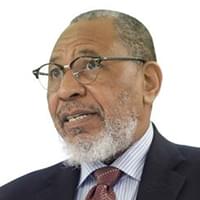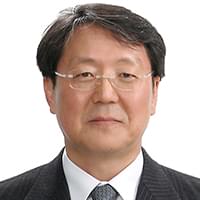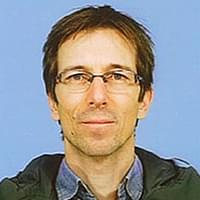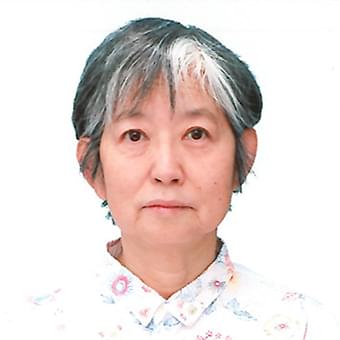In the fields of climate change and of biodiversity, like many others, policy provides the enabling conditions for action. Science is relied upon to inform policy. Science also needs feedback from policy regarding the way in which it is delivered. The interface between science and policy, therefore, needs to be permeable and mechanisms are needed to bridge it. At the international level the IPCC and IPBES have stepped up to fulfil this role for climate change and biodiversity, respectively. They have done so most prominently through a series of assessments aimed primarily at policymakers. IGES hosts technical support units for both organizations, while IGES staff have been, and continue to be, among the experts to conduct these multi-year and multi-national assessments. This session will feature four such experts, as well as members of the Bureaus of IPCC and IPBES. In the spirit of the theme of this year’s ISAP, the panel discussion will also consider IPCC and IPBES assessments in the context of our evolving understanding of infectious diseases.
To explore the meaning of a “science-policy interface”; the mechanisms that bridge it; and the ways in which it facilitates action. Particular emphasis will be placed on climate change and biodiversity, through the involvement of presenters and panelists from the Intergovernmental Panel on Climate Change (IPCC) and Intergovernmental Platform on Biodiversity and Ecosystem Services (IPBES).
SpeakersVice Chair, Intergovernmental Panel on Climate Change (IPCC)

Youba Sokona
Vice Chair, Intergovernmental Panel on Climate Change (IPCC)
Prof SOKONA is currently Senior Advisor for Sustainable Development at the South Centre. With over 40 years of experience addressing energy, environment and sustainable development in Africa, Prof Youba SOKONA has been at the heart of numerous national and continental initiatives. He coordinated the scoping, framing and development of the “Africa Renewable Energy Initiative”. Reflecting his status, Prof SOKONA was elected Vice-Chair of the Intergovernmental Panel on Climate Change (IPCC) in October 2015. Prior to this, Prof SOKONA was Co-Chair of IPCC Working Group III on the mitigation of climate change for the Fifth Assessment Report after serving as a Lead Author since 1990. In addition to these achievements, Prof SOKONA has a proven track record of organisational leadership and management, for example as Inaugural Coordinator of the African Climate Policy Centre (ACPC) and as Executive Secretary of the Sahara and the Sahel Observatory (OSS). Prof SOKONA’s advice is highly sought after, and as such, he is affiliated with numerous boards and organisations, including, as Honorary Professor at the University College London (UCL), Member of African Academy of Sciences, Member of Science Advisory Committee of the International Institute for Applied System Analysis (IIASA) and as a Special Advisor to the African Energy Leaders Group, Member of the Advisory Board of the Payne Institute for Public Policy, Colorado School of Mines, USA. In short, Prof SOKONA is a global figure, with deep technical knowledge, extensive policy experience and an unreserved personal commitment to African led development.
Vice-Chair from Asian-Pacific States, Intergovernmental Science-Policy Platform on Biodiversity and Ecosystem Services (IPBES)

Youngbae Suh
Vice-Chair from Asian-Pacific States, Intergovernmental Science-Policy Platform on Biodiversity and Ecosystem Services (IPBES)
Dr. Suh is currently a professor of Natural Products Research Institute of Seoul National University since 1993. He teaches biology, plant taxonomy, medicinal plants and natural resources for both undergraduates and graduates. He also has actively carried out researches on examining phylogenetic relationships in flowering plants and identifying botanical origins of herbal medicines in Northeast Asian countries. He has been involved in global discussions on environment and biodiversity at various levels. His service includes the Chair of Asia Regional Committee for IUCN (2009-2015) and the Bureau of CBD SBSTTA (2013-2015). He currently serves as a Bureau Member for IPBES for his second term.
Programme Director, Natural Resources and Ecosystem Services, IGES; Adviser, IPBES Technical Support Unit for the Assessment of Invasive Alien Species (IPBES-TSU)

André Mader
Senior Policy Researcher, Natural Resources and Ecosystem Services, IGES
André is a conservation biologist with a focus on international biodiversity policy. Prior to joining IGES in July 2018 he was based in Switzerland for 3 years, coordinating the IPBES Regional Assessment for Europe and Central Asia. Prior to that he spent 4 years at the Secretariat of the Convention on Biological Diversity in Canada, overseeing implementation of the Convention at the subnational level. That followed 5 years at ICLEI’s Cities Biodiversity Centre in South Africa, where he was responsible for the flagship “Local Action for Biodiversity” initiative. Earlier in his career Andre’s work, in Africa and the Middle East, included capacity development of subnational government practitioners; various ecological fieldwork; participation in the establishment of a wildlife breeding center; and management in nature reserves.
Research Manager, Natural Resources and Ecosystem Services, IGES

Yasuo Takahashi
Research Manager, Natural Resources and Ecosystem Services, IGES
An expert in ecology and ecosystem services valuation. Involved in the Intergovernmental Science-Policy Platform on Biodiversity and Ecosystem Services (IPBES) Regional Assessment of Biodiversity and Ecosystem Services for Asia and the Pacific as a fellow, as well as in the IPBES Global Assessment of Biodiversity and Ecosystem Services as a contributing author. Also been engaged in the Satoyama Initiative, a global network of practitioners to promote biodiversity conservation in production lands and seas. BSc from the Faculty of Agriculture, Hokkaido University, and MSc from the Darrell Institute for Conservation Ecology, University of Kent, UK.
Senior Researcher, Natural Resources and Ecosystem Services, IGES

Rajarshi Dasgupta
Senior Researcher, Natural Resources and Ecosystem Services, IGES
Dr. Rajarshi Dasgupta joined IGES in May 2018 as a senior researcher in the domain of Natural Resource and Ecosystem Services. He holds diverse research interests in the field of landscape ecology and planning, which include Ecosystem-based Disaster Risk Reduction (Eco-DRR), spatial quantification of ecosystem services, land change simulation, development of socio-ecological scenarios, participatory conservation, and social forestry. Earlier, he has worked extensively with mangrove communities in India, Bangladesh, and Myanmar. Prior to joining IGES, he was working with the University of Tokyo as Japan Society for Promotion of Sciences (JSPS) post-doctoral fellow in the Graduate School of Agriculture and Life Sciences. Previously, he has worked in multiple technical and administrative capacities, including government, NGO and academia, and also served as a Lead Author (LA) for IPBES Asia-Pacific Regional Assessment Report. He is currently serving as the Lead Author for IPBES assessment on Sustainable Use of Wild Species (2018-21), as Chapter Scientist of IPCC AR-6 (WG-II) and as a Visiting Assoc. Professor in the Integrated Research System for Sustainability Science (IR3S), the University of Tokyo.
Senior Policy Researcher, Natural Resources and Ecosystem Services, IGES

Pankaj Kumar
Senior Policy Researcher, Natural Resources and Ecosystem Services, IGES
Dr. Pankaj Kumar joined IGES since April 2018 as senior policy researcher in the field of water resources and climate change adaptation. Prior to this, he worked as JSPS/UNU-IAS postdoctoral fellow in United Nations University, Institute for Advanced Study of Sustainability (UNU-IAS), Tokyo; for more than three years. Recently his research work focused on ‘Water quality assessments and scenario modeling for clean urban water environment in South-East Asian developing cities’ a transdisciplinary work; which aim to enhance community resilience to address growing water demands under global change and rapid urbanization, with ultimate intention to give a solution for sustainable water resource management at policy level. Right after completing his doctoral research, he also worked as assistant professor in ISTAR, Gujarat, India. He holds doctoral degree majored in Geo-Environmental Science from University of Tsukuba, Japan. In parallel, he had work experience as Chapter Scientist for the Fifth Assessment Report (AR5) of the Intergovernmental Panel on Climate Change (IPCC). He was mainly associated with the IPCC’s Working Group-II report that focuses on “Impacts, Adaptation, and Vulnerability” which was released in December 2014. Also, currently working as scoping expert for nexus assessment of the interlinkages among biodiversity, water, food and health in the context of climate change under Intergovernmental Science-Policy Platform on Biodiversity and Ecosystem Services (IPBES) secretariat. He has numerous research publications including one authored book, several peer reviewed journal articles, book chapters of international repute, and a monograph to his credit.
Senior Research Advisor, IGES

Mikiko Kainuma
Senior Research Advisor, IGES
Dr. Mikiko Kainuma is currently a senior research advisor of IGES. She joined National Institute for Environmental Studies (NIES) in 1977, and since 1990, she has been engaging in the development of Asia-Pacific Integrated Model (AIM), which assesses policy options for stabilizing the global climate, particularly in the Asian-Pacific region. She led the Low Carbon Asia Project from 2009 to 2014. She served as an adjunct professor at Japan Advanced Institute of Science and Technology from 2003 to 2014. Her current research area of interest are in low carbon societies in Asia, energy systems and social development. She has published papers in international journal and books. These include Climate Policy Assessment (2003), Methodologies for leapfrogging to low carbon and sustainable development in Asia (2017), and Post-2020 Climate Action: Global and Asian Perspectives (2017). She received Academic Award by the Society of Environmental Science, Japan (2011), Remarkable Contribution to Science and Technology 2010: NISTEP (2010), and Nikkei Global Environmental Technology Award (1994). She was a Lead Author of Intergovernmental Panel on Climate Change (IPCC) Fourth and Fifth Assessment Report, and IPCC Special Report on 1.5 degrees. She was a Coordinating Lead Author of UNEP Global Environment Outlook 6 (GEO-6). She was selected “55 Japanese women with a sense of mission”, by Forbes Japan (2016).